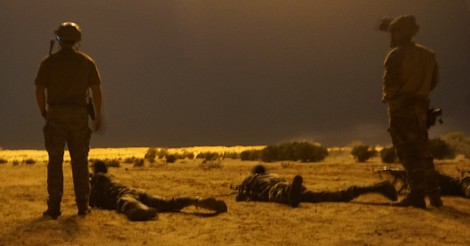Your podcast discovery platform
Curious minds select the most fascinating podcasts from around the world. Discover hand-piqd audio recommendations on your favorite topics.

piqer for: Global finds
Ciku Kimeria is a Kenyan author "Of goats and poisoned oranges" - (https://www.amazon.com/goats-poisoned-oranges-Ciku-Kimeria-ebook/dp/B00HBBWPI6), development consultant, adventurer and travel blogger (www.thekenyanexplorer.com). She writes both fiction and non-fiction focusing on African stories that need telling. She has worked on diverse pieces for various international and local publications including Quartz, Ozy, The East African etc. She has travelled to 45 countries – 16 of them in Africa. 153 countries to go and 63 territories!
"Of goats and poisoned oranges" has been extremely well received in Kenya and beyond. It tells the story of a Kenyan middle aged power couple and their complicated marriage. The novel explores issues of greed, revenge, betrayal and murder. It runs from the 1960s to 2013. It has been described as “Wicked, funny, poignant, wacky, human, a big ball of fun and danger”, “A unique and captivating book”, “Fun and intriguing”, “Impossible to put down once you start reading.”
She recently moved to Dakar, Senegal from Kenya to work on her second novel. She also works at as the Africa Communication Manager at a leading global strategy consulting firm.
She holds a B.S. in Management Science from MIT with minors in Urban Planning and International development studies.
The Secret Wars The US Is Fighting Overseas
After 9/11, it was not difficult to convince the American people to give more power to the Executive branch to deal with terrorists and radicalized people the world over in whichever way they thought best. Legislation that was codified after 9/11 essentially allows the US presidency to use force at its own discretion to abate a future crisis.
There was no mention of “Afghanistan”, “Osama bin Laden”, or “Al Qaeda” in the short resolution known as the Authorization for Use of Military Force, or A.U.M.F. It simply said that Congress authorizes the president to use “all necessary and appropriate force” against the nations, organizations or people that “he determines planned, authorized, committed, or aided” the terrorist attacks on Sept. 11 “to prevent any future acts of international terrorism against the United States by such nations, organizations, or persons”.
Since then there have been US military activities in far-flung countries whose success or failure can only be fully understood in hindsight. Such activities have been blamed for the rise in insurgency and the growth of terror organizations aligned to Al-Qaeda in places they never existed before. For example, Boko Haram in Nigeria, Islamic State in Iraq, Syria, Libya and other countries, Al Shabaab in Somalia, etc.
This fascinating article, which looks at the last day in the lives of four American soldiers who were killed in Niger, brings up the question again: "What are US troops doing in certain countries and regions — including Africa?" While the general claim has been that American troops have been in Africa to train, advise and assist local troops, the nature of the ambush in which the four soldiers were killed tells a different story altogether.
“This is an endless war without boundaries, no limitation on time or geography,” Mr. Graham continued, adding, “We don’t know exactly where we’re at in the world militarily and what we’re doing.”
